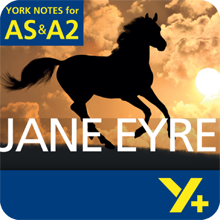Your Assessment
Read through the answer below and decide what grade to give it. Use the Hints & Tips to help you make your assessment.
The period in which "Jane Eyre" was written was one of major social and political upheaval. The Chartists were trying to get the vote for the working man, and were not the only ones to rebel, the Luddites had responded to the introduction of machinery by breaking the machines. Charlotte Brontë, who lived in the North of England, would have been well aware of these rebellions. Jane is in sympathy with the 'millions' who protest either silently or visibly in 'political rebellions'. But, Jane never escapes the prison of her class and gender.
What is Jane Eyre's class? At the beginning she is not really part of the Reed family - she is looked down on by her aunt as not belonging to the same social class as her three cousins. She is sent to an 'institution' – Lowood school is a charitable school – and later has to work as a governess, which is when she takes the job at Thornfield. As a governess she then looks down on the other servants, even those who are kind to her. In the end, she is able to marry Rochester only because she inherits a fortune – so nothing changes.
Jane is also limited because she is a Victorian woman. Jane must be 'respectable'. Without owning anything, all that she can do is marry. If she allows herself to become Rochester's mistress, when she knows he already has a wife, she will lose everything. In fact, it seems that if she did do this, she would become a lunatic like Bertha. All Rochester seems to want, until he meets Jane, is mistresses, and then he wants her to become one as well. He is like Bluebeard. However, because she sets him a good example, she does the right thing and she is moral like a good Victorian woman should be. Later, she seems to be rewarded because the Rivers family save her and then she inherits too. In the end, Rochester does the right thing, too, by trying to save Bertha – but he is hurt and she dies. Because of all of this, Rochester and Jane can in the end do what they want, marry and have children, which some critics have said is a conventional ending.
In fact, all of the women in "Jane Eyre" are imprisoned by their class and gender. Servants can only watch, because they are working class. Women must marry – the only young woman who does not marry becomes a nun! Despite Jane's desire to escape her class and sex, and despite readers' shocked responses to the novel, which saw Jane as very rebellious, even as unchristian, Jane in fact remains imprisoned by her class and gender like every other woman in the text. I do not believe she is liberated at all.
